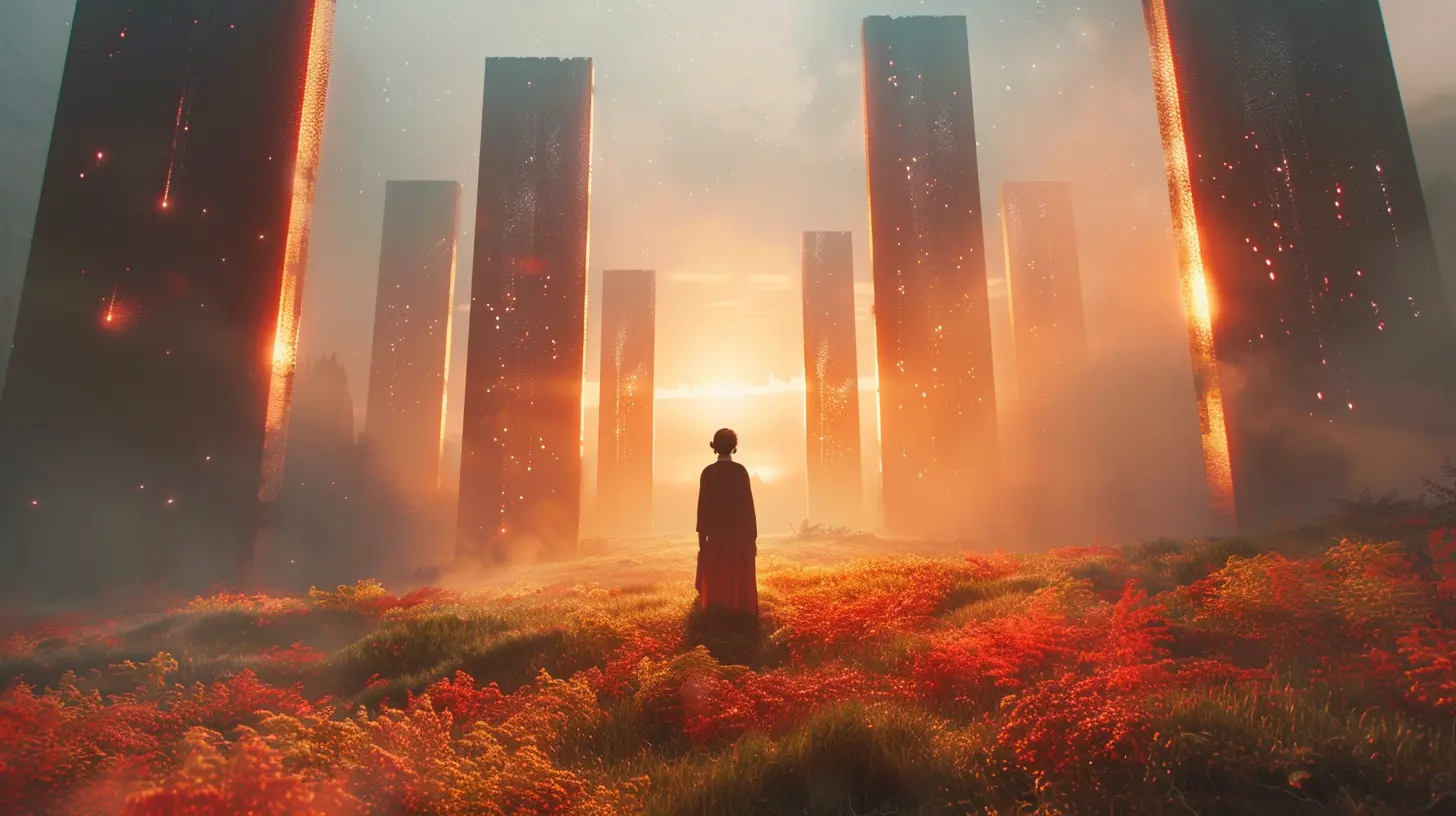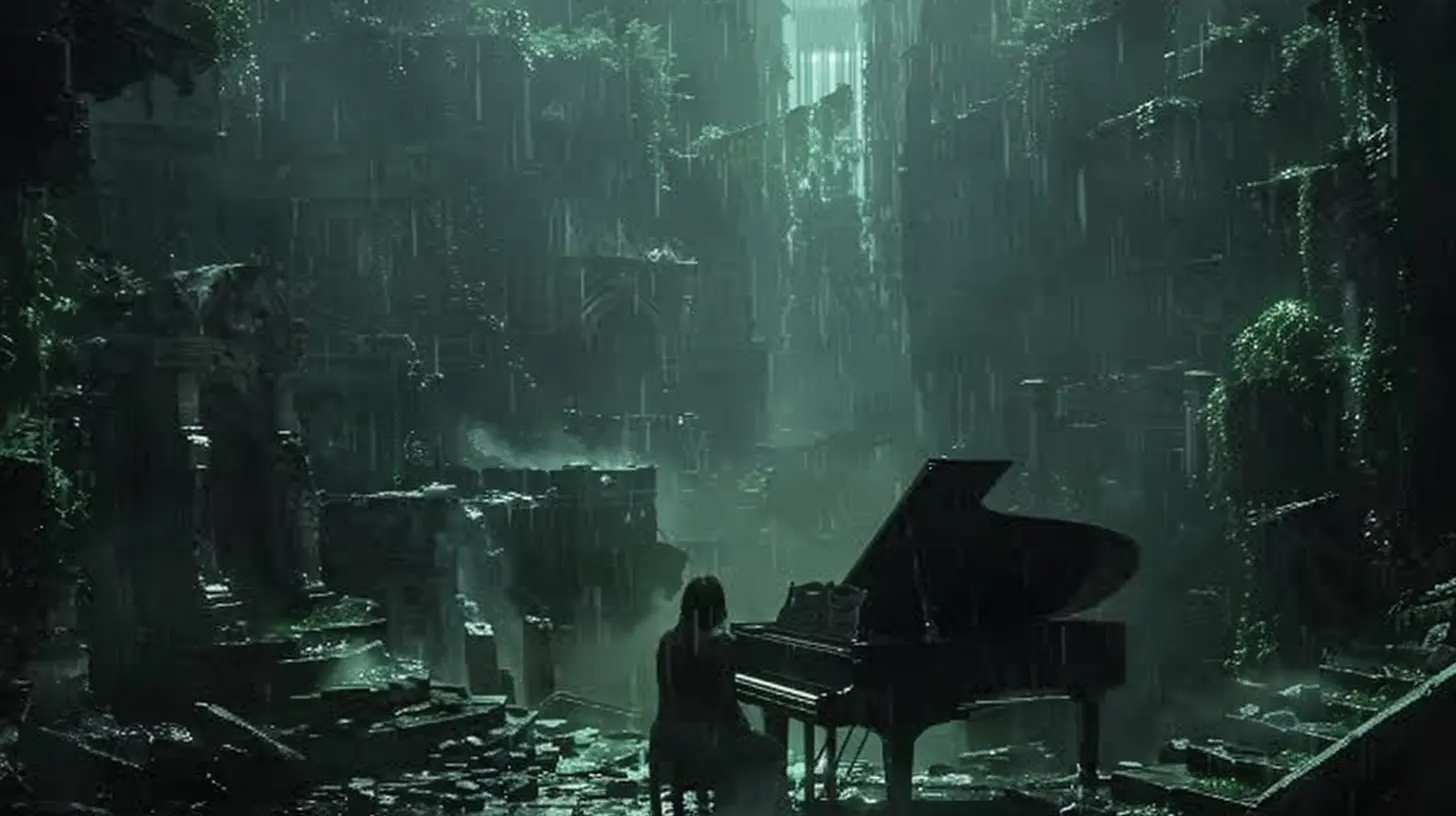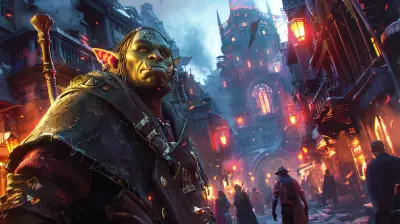What It Takes for a Soundtrack to Win Best Music at the Game Awards
26 September 2025
Let’s be honest — a great game soundtrack is a total game-changer. It doesn’t just set the mood, it makes the mood. A killer score can take your breath away in a boss fight or bring you to tears in a quiet character moment. But what exactly makes a game’s music award-worthy? What goes into that audio magic that earns a spot on the stage at The Game Awards?
Winning "Best Music" at The Game Awards isn't just about catchy melodies or big-name composers — it’s about crafting an unforgettable experience that lives rent-free in your head long after the credits roll. So, let’s rub shoulders with the musical masterminds and dive into what it really takes for a soundtrack to snag that golden joystick (okay, fine, it’s more of a trophy, but you get the idea).
The Emotional Hook: Music That Tells a Story
Ever hear a certain song and instantly feel like you’re back in that moment? That’s no coincidence.For a game soundtrack to win big, it has to do more than fill the background. It needs to speak. And not just whisper — it needs to shout, cry, laugh, and scream right alongside the player. The best video game scores don’t just support the story, they tell the story.
Take The Last of Us Part II, for example. Gustavo Santaolalla’s haunting guitar themes didn’t just underscore Ellie’s journey — they became part of who she was. You could feel her inner struggle, her pain, and her determination through every pluck of a string. That kind of emotional depth? Absolute award bait.
> 🎶 Great game music is like a heartbeat — it syncs with the player, becomes invisible when needed, and thunderously unforgettable when it counts.
Dynamic Composition: Music That Reacts to You
Static music in gaming is old news. What wins awards today is adaptive scoring — soundtracks that evolve and respond in real time to what’s happening in the game.This isn’t just technical wizardry. It’s an art. Think about Doom Eternal — Mick Gordon’s pulse-pounding metal soundtrack isn’t just background noise; it rages harder when you’re in the thick of battle and cools off when you're back to exploring.
Dynamic music makes the player feel like they're in control of the symphony. It’s an immersive trick that hooks both the player and the award panel, pushing the boundaries of what a game score can do.
Variety and Cohesion: A Musical Rollercoaster That Feels Whole
One-hit wonder tracks won’t cut it. To win Best Music, a game needs a soundtrack full of variety—while still feeling thematically unified.Each track should stand on its own, yet still feel part of the same universe. Some moments need to be loud and epic; others need subtle, minimalist ambiance. The hard part? Making all of them feel like they came from the same creative vision.
Take Nier: Automata. Keiichi Okabe’s soundtrack shifts from operatic to electronic to ambient seamlessly. And despite those wild swings, it still feels like one cohesive soundscape. That’s the kind of range and consistency that makes a game’s music unforgettable.
Cultural and Genre Fusion: Beyond Just “Epic”
Let’s face it — orchestras are awesome, but they’re not the only way to a trophy.Many award-winning soundtracks succeed because they break musical molds. They blend cultural influences, play with unexpected instruments, and mix genres in ways you don’t see coming. That boldness? It gets noticed.
Ghost of Tsushima struck gold here. Composer Ilan Eshkeri combined traditional Japanese instruments with cinematic scoring to create a soundtrack that felt historically grounded but emotionally timeless. It wasn’t just music — it was an audible love letter to samurai cinema, and it worked.
A score that pulls from unique musical traditions or blends contrasting genres (think jazz in a noir game or synth-pop in a dystopian setting) can really set a game apart — and catch the ears of award judges.
Memorable Motifs: Themes You Can Hum in the Shower
Can you hum it? That’s a big one.It sounds simple, but memorability is key. A great theme — think Legend of Zelda or Hollow Knight — sticks with you. It doesn’t fade into the background. It becomes part of the game’s brand.
Recurring motifs throughout a game help reinforce emotional beats. They anchor the story in your mind and trigger feelings instantly. Heard a soft piano version of the main theme during a sad cutscene? That callback hits different when it’s done right.
Judges at The Game Awards are human too. And when a melody lingers in your brain weeks after you stopped playing? That’s when you know the composer nailed it.
Technical Excellence: From Sound Design to Mixing
Let’s not forget the invisible heroes: the sound engineers and mixers.A soundtrack won’t win awards if it’s clashing with the dialogue or drowning out sound effects. Every note needs to sit just right in the mix. A great soundtrack is crystal clear, balanced, and dynamic — whether you’re playing on headphones, TV speakers, or a surround sound system.
While players might not notice expert mixing, rest assured that award committees do. Sound quality and clarity are just as important as composition. A muddy, poorly mixed track, no matter how well-written, simply won’t cut it.
Composer’s Vision: A Passion Project Pays Off
Sometimes, you can just feel when the composer really cares.Award-winning soundtracks often come from composers who are deeply embedded in the game’s creative process — not just hired guns. They collaborate with directors, writers, and developers to craft something that’s not just good, but true to the game.
When Bear McCreary scored God of War (2018), he wasn’t just writing music — he was helping shape Kratos’ emotional journey. Hearing that Norse-influenced score swell during certain moments? Spine-tingling. It felt personal. And that authenticity is what wins awards.
Timing and Context: Music That Amplifies Moments
Music is all about timing. A perfectly placed note can elevate a moment from “cool” to iconic.Think back to that one boss fight where the music kicked in just right, or that tragic scene where the strings swelled exactly when your heart broke. That’s no accident. It's precision.
Timing is everything. If the music hits too early or gets buried under other audio, you lose the magic. Award-winning soundtracks know when to hold back and when to go full throttle.
Popularity + Critical Love: The Sweet Spot
Let’s be real — buzz matters.While The Game Awards are judged by industry professionals, fan reception still plays a role. A soundtrack that trends on social media, racks up Spotify listens, and spawns a hundred YouTube covers? That’s a sign it’s hitting the right notes with players and critics.
But it can’t just be popular. It also needs depth. Shallow earworms may go viral, but they rarely win trophies. The sweet spot lies where crowd-pleasing meets compositional brilliance. That’s when the stars align.
Previous Winners: What History Tells Us
Let’s rewind a bit and look at patterns from past winners. Here are a few recent champs:- 2023: Final Fantasy XVI – Known for cinematic orchestration and deeply emotional tracks.
- 2022: God of War: Ragnarök – Rich Norse-inspired themes carrying emotional and epic weight.
- 2021: Nier Replicant – Haunting, experimental tracks that tug at the heart.
- 2020: Final Fantasy VII Remake – A reimagined classic with powerful nostalgia and new flair.
Each of these soundtracks doesn’t just sound good — they feel good. They connect on a deeper level, blending innovation with emotion.
So… What Really Wins Best Music?
Let’s boil it down to the core ingredients:- Emotionally Resonate: It has to make you feel something — joy, sorrow, adrenaline.
- Technically Masterful: Sound production has to be flawless.
- Memorable Themes: You should be humming them for weeks.
- Immersively Adaptive: The music should react to gameplay.
- Original and Bold: Playing it safe rarely earns a trophy.
- Cohesively Varied: Diverse, yet unified by a creative vision.
But above all? It has to make the game better. Music that elevates every moment, enhances the story, and lingers long after the game is done — that’s Game Awards gold.
Final Thoughts: Music That Stays After the Game Ends
When the controller’s down and the screen goes black, it’s the music that often stays with us. It’s the last whisper of the journey we’ve just finished — the emotional echo that reminds us of everything we felt along the way.For a soundtrack to win Best Music at The Game Awards, it has to do more than entertain. It needs to connect. To resonate. To push the boundaries of what video game music can be.
And when it does? Well, that trophy is just the cherry on top.
all images in this post were generated using AI tools
Category:
Game AwardsAuthor:

Lana Johnson
Discussion
rate this article
1 comments
Lisa McCallum
Great insights! A memorable soundtrack blends emotion, enhances gameplay, and resonates with players. Originality and thematic coherence are key to standing out at the Game Awards.
October 4, 2025 at 3:05 AM

Lana Johnson
Thank you! I completely agree—emotion and originality are essential for a standout game soundtrack.


